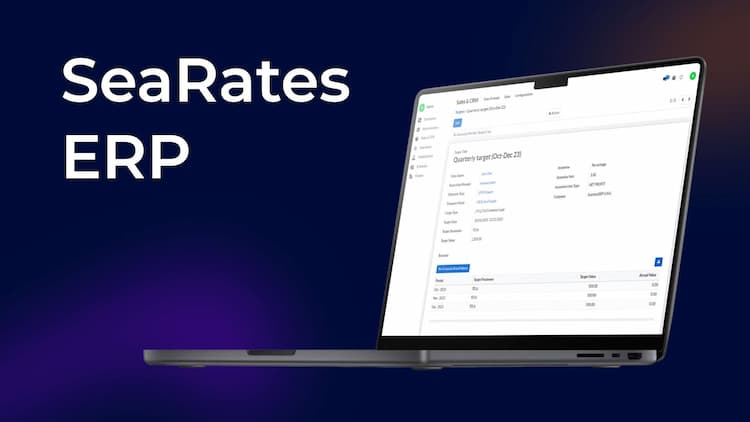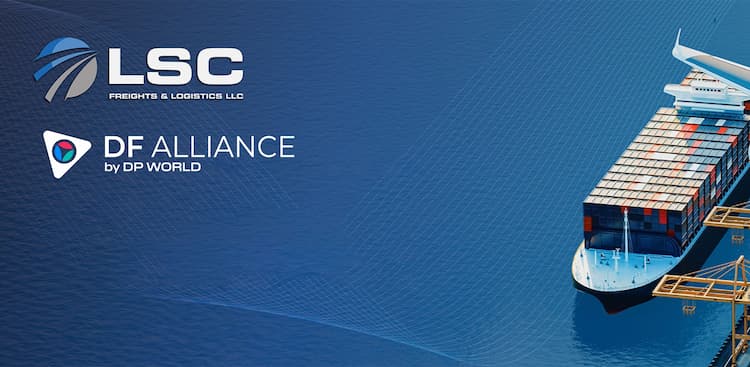
Building Lasting Connections: Strategies for Forming Trustworthy Partnerships in the World of Freight Forwarding
Building lasting connections and forming trustworthy partnerships in freight forwarding are essential for long-term success. To excel and grow in this competitive industry, freight forwarders must adopt strategies that foster strong relationships with their partners and customers.
Here are some key strategies drawn from industry research and insights:
Face-to-Face Interactions: Despite the advancements in digital communication, nothing beats the personal touch of face-to-face meetings. These interactions are crucial for building a culture of trust, fostering rapport, and connecting on a deeper level with partners. Annual meetings and conferences, such as Global Freight Summit, provide excellent opportunities for these interactions, enabling freight forwarders to nurture business relations more effectively.
However, where such interactions are not cost-effective, the opportunities to collaborate and meet new partners can be effective virtually through online meetings and webinars like those by DFA.

Commitment and Reliability: Keeping commitments is vital for building trust. This means making deliveries within the promised timeframe and cost. Demonstrating a track record of reliability can significantly enhance a freight forwarder's reputation and build confidence among partners.
DFA's commitment to supporting its members is evident in its comprehensive support framework, ensuring seamless logistics operations globally. This multifaceted support includes personalised assistance from account managers, rates managers, and around-the-clock call centre support. These resources are designed to help with sales, shipping leads, and bookings, promoting each member's services to the end customer.
Timely Payments: Ensuring smooth financial transactions is fundamental. Prompt and correct payments cement a freight forwarder's credibility and trustworthiness in the eyes of partners. In this context, Digital Freight Alliance (DFA) members have the distinct advantage of access to innovative trade financial solutions that reinforce their financial stability and business growth.
One key aspect of this financial support is the access to a 30-day working capital solution. This feature allows DFA members to manage their cash flow more effectively, ensuring they have the necessary funds to maintain their operations without interruption. The " Ship Now, Pay Later" option provides members with a flexible payment solution, enabling them to ship their goods immediately while deferring payment for a specified period. This flexibility is invaluable, particularly in scenarios where immediate shipment is critical, but funds are temporarily tied up in other business operations. It allows DFA members to keep their commitments to clients, enhancing their reputation for reliability and trustworthiness.
DFA members have access to DP World Trade Finance solutions. These solutions offer a range of financial services tailored to the needs of the logistics and freight forwarding industry. From invoice factoring and discounting to trade payables financing and inventory financing, these tools empower DFA members to seize growth opportunities and manage their financial obligations more efficiently.

Digitisation: Embracing digital transformation can lead to enhanced operational efficiency and customer care. Digital tools and platforms can streamline workflows, optimize processes, and improve communication, thereby strengthening relationships with industry partners.
DFA's cutting-edge digital logistics tools available through SeaRates include freight rates benchmarking, cargo tracking, route optimisation, schedules, paperwork, and more, all with SaaS access, API, and white-label web integrations, depending on the membership tier. These tools enable end-to-end tracking of multimodal shipments, supply chain visibility, management by exception with email notifications for key milestone events, and insights on logistics network performance and optimisation opportunities.
Effective Use of Social Media and Online Presence: Social media platforms like LinkedIn, Facebook, and Instagram are invaluable for connecting with industry professionals, sharing insights, and participating in relevant discussions. Additionally, a strong online presence, including a professional website, can significantly boost a freight forwarder's visibility and attractiveness to potential partners.
Customer-Centric Strategies: Focusing on customer success involves not just resolving immediate issues but ensuring long-term satisfaction and success of customers. This approach helps in building long-term relationships, gaining a competitive advantage, enhancing brand reputation, and driving business growth.
Understanding Customer Expectations: Knowing what customers expect in terms of timely deliveries, real-time shipment tracking, safe handling of goods, easy issue resolution, and customised services is key, as is understanding the industry's pain points. This understanding helps in tailoring services to meet these expectations, thereby enhancing customer satisfaction and loyalty.
Clear and Timely Communication: Effective communication is essential in freight forwarding. Providing accurate, timely updates and maintaining open lines of communication can prevent misunderstandings and build trust with customers. Utilising the cutting-edge digital tools from DFA enhances your communication with end customers.
Incorporating these strategies into your business practices can lead to the formation of strong, enduring partnerships in the freight forwarding industry. These partnerships are not only beneficial for sustained business growth but also crucial for navigating the complexities of global trade and logistics. DFA's central commitment is to foster a collaborative ecosystem where shared knowledge and resources can lead to innovative solutions for industry challenges. By building solid foundations, freight companies not only thrive individually but also contribute to the overall strength and resilience of the freight forwarding sector.



